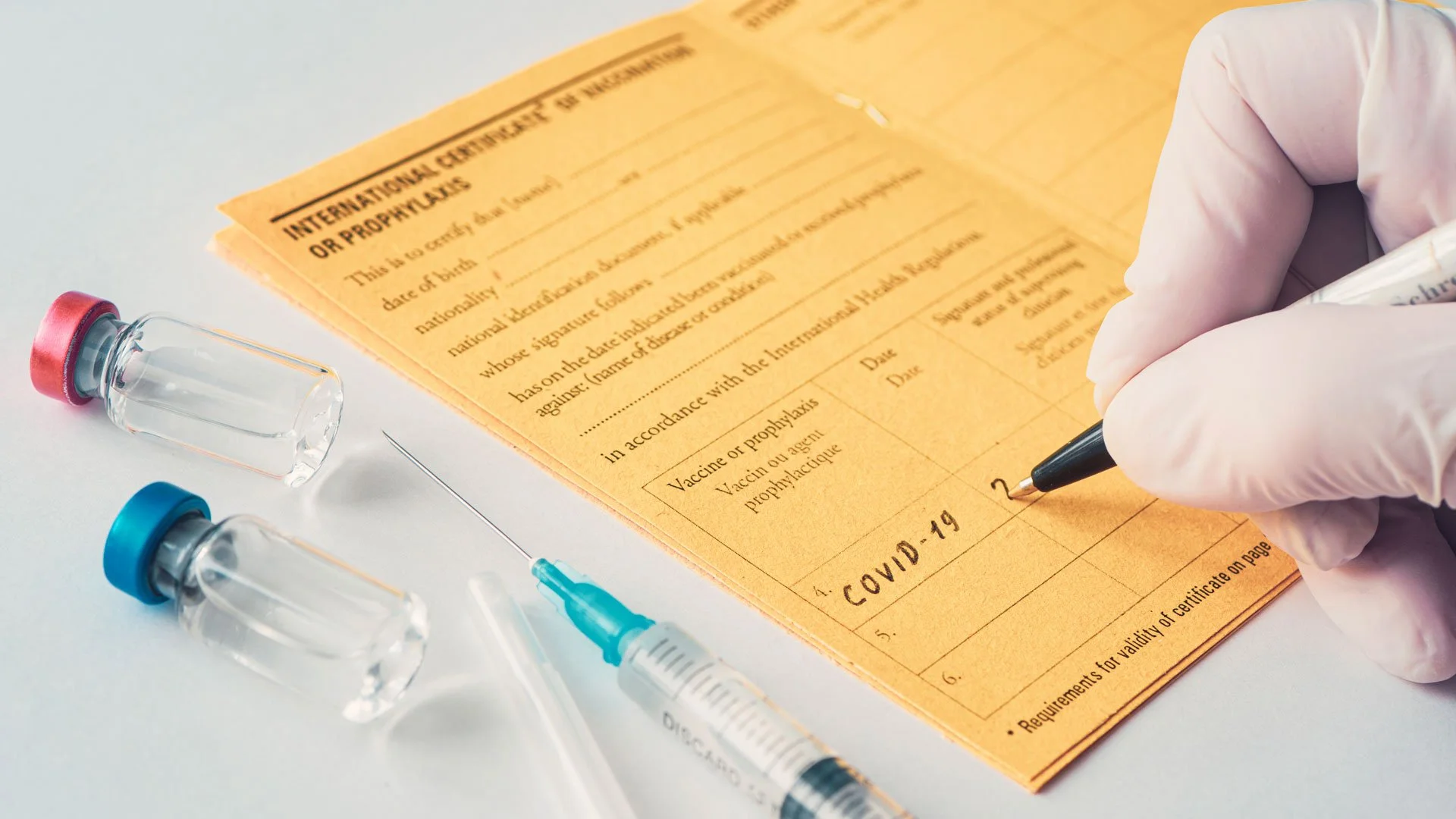Immunizations you need: Important vaccinations for travel
Before you hop on a plane, you need to know what diseases you may encounter and the important vaccinations for travel you should receive to protect you and your family.
Before you travel, you may need to obtain essential and, in some instances, mandatory vaccinations, depending on the country you are planning to visit. It is very important to ensure you are up to date on the immunizations you need and the recommended immunizations before you try to enter another country.
Do not wait until the last minute to start chasing down needed immunizations. Some vaccines require multiple doses to be effective, spread out over several weeks or even months. And many vaccines take several weeks in your body before they are fully effective. The Centers for Disease Control (CDC) recommends that travelers visit their physician at least four weeks before departing on an international trip.
Realize too that epidemics and disease outbreaks around the world are in constant flux. The COVID pandemic should have provided ample proof of how fast a virus can spread and mutate. Your best source for knowing the current state of international health hot spots and recommended vaccinations before travel to a country is the CDC travel information website. We'd also recommend The Yellow Book as the definitive resource on required travel immunizations. It is updated and published every two years by the CDC. Vaccine recommendations also vary by age and for those with underlying health conditions. Be sure to speak with your doctor about any vaccinations you are planning to take. The U.S. Department of Health & Human Services has a great page about vaccinations.
Here are several of the most commonly required vaccinations for travel
Polio – Even if you have been immunized, the CDC recommends getting a booster shot before traveling abroad.
Yellow Fever – If you are traveling to sub-Saharan Africa or specific countries in South America, a yellow fever vaccination will be required. For this one, check with your doctor and clinic. The CDC and the World Health Organization used to stipulate that a yellow fever shot was required every 10 years. Now, however, determining whether or not you need a booster shot depends on where you are traveling. The CDC yellow fever guidelines state that if you are traveling into an area where there are ongoing outbreaks of the disease, a booster shot is still recommended.
We still wear masks when traveling and in enclosed public spaces where the risk of contracting a virus, such as the flu or COVID, is increased. We also ensure our COVID, flu, and other boosters are up to date before traveling anywhere.
Carry an official record of your vaccinations with you
The proof that you have all the immunizations that you need must be recorded on an official World Health Organization International Certificate of Vaccination, also known as the "Carte Jaune" or "Yellow Card." Your doctor, the health clinic, or the county health department (essentially, wherever you receive your vaccinations) will fill out the card at the time the vaccination is administered. The entry must also include an official stamp, obtainable from your county health department, approved international vaccination clinics, and some doctors.
You will also want to enter other recommended vaccinations you have received on your Yellow Card, so you have a complete health record in one place.
These are some of the other important vaccinations for travel
In many cases (although not all), these vaccinations are not required for travel, but are recommended. But if you are heading overseas in this day and age, not having these basic immunizations against various bugs and viruses might not be the best idea. Especially considering there are countless documented cases of travelers getting sick from some of the diseases listed below, simply by coming into contact with an infected person on an airplane or ship.
Tetanus/Diphtheria – You will need a booster every 10 years.
Measles/Mumps/Rubella – If you received a vaccination for any of these after 1967, you are considered immunized for life. However, if your vaccination was before 1967, a booster shot is recommended.
Hepatitis A and B – Both types of hepatitis can be prevented with a combination vaccine that is given via three doses.
Typhoid – Though rare in developed countries, contracting typhoid fever remains a risk where food and water may be contaminated with Salmonella typhi bacteria.
Cholera – Though rare in the United States, it is still common in other countries. Each year, nearly 100,000 people die from the disease globally.
COVID – You may need to carry your updated vaccination card with you that shows proof of completing required or recommended vaccinations and boosters.
Flu – Getting an annual flu shot is strongly advised. A study in The Journal of Infectious Diseases published in 2007 found that respiratory infections following air travel were frequent, with the flu being more prevalent. In many ways, when you travel, especially in crowded public transportation, like an airplane, you are going to war with germs. It pays to have the flu shot as one of the key vaccinations for travel, and know the tips to stay healthy.
Rabies - Rabies is spread through the bite or scratch of an infected animal. All mammals are susceptible, but dogs and other wildlife (particularly bats) are the most common vectors. As such, rabies vaccinations are recommended for all travelers who will be exploring caves or spending a lot of time outdoors or in rural areas where getting bitten by a dog, bat, or other infected mammal is a risk. Keep in mind that the three-shot rabies vaccination will NOT prevent rabies, but it will save you a whole mountain of pain and trouble should you get bitten by a potentially infected animal. For one, you will not need the very hard-to-obtain Human Rabies Immune Globulin. Instead, you'll need two more doses of rabies vaccine, which is much more commonly available around the world.
Malaria – There is no vaccine for malaria yet. Still, if you are traveling to any place where malaria is prevalent, you might want to speak with your doctor about obtaining a prescription for one of the currently available medications. All have various side effects that should be considered, and none are 100 percent effective. If you are going to be getting a cholera vaccination, malaria medication with chloroquine should not be taken until at least 10 days after receiving the cholera dose. Again, as with any medication, speak with your doctor!
Understand the risks of taking a vaccine
Any drug you take can have side effects and carry certain risks to different age groups and population sectors. Of course, always speak with your doctor or clinician. But for your own education, we'd recommend visiting the CDC Vaccine Information Statements (VIS) webpage. Alternatively, you can type the name of a disease followed by "V. ” So, for yellow fever, enter "yellow fever vis" in the search engine box.
Just getting the immunizations you need is not enough
Just because you are immunized does not mean you are ever 100 percent assured of not getting ill or having a health emergency when traveling. Therefore, it's essential to understand the coverage your health insurance provides internationally.
In most cases, it is advised to purchase travel insurance with very good health coverage built in that will cover hospitalizations, evacuations, and more.
You should also know the best ways to stay healthy while traveling and how to prevent food and water-borne illness. In truth, you are far more likely to suffer from travelers' diarrhea than a serious illness, so be prepared.



